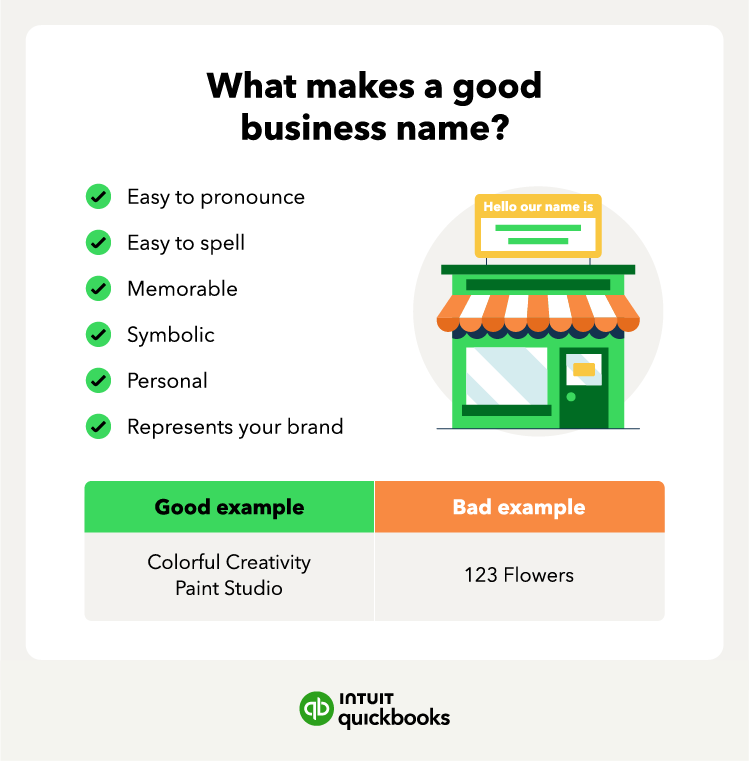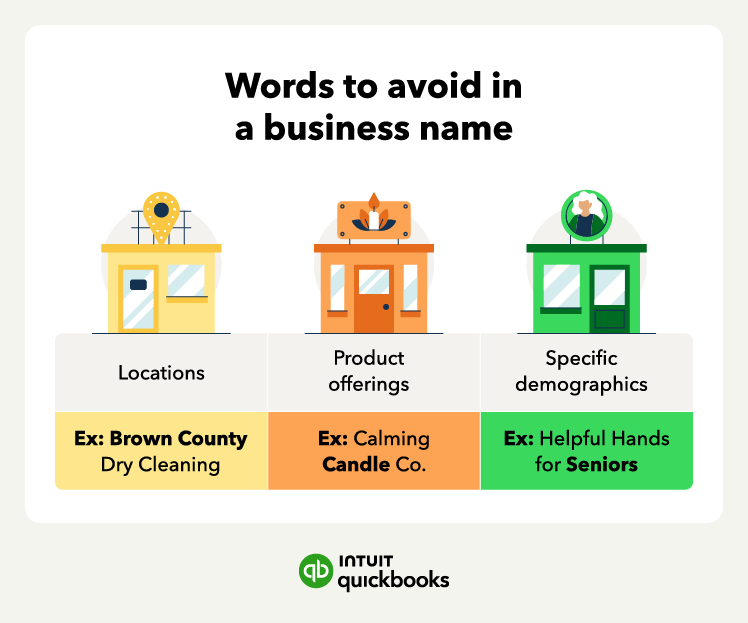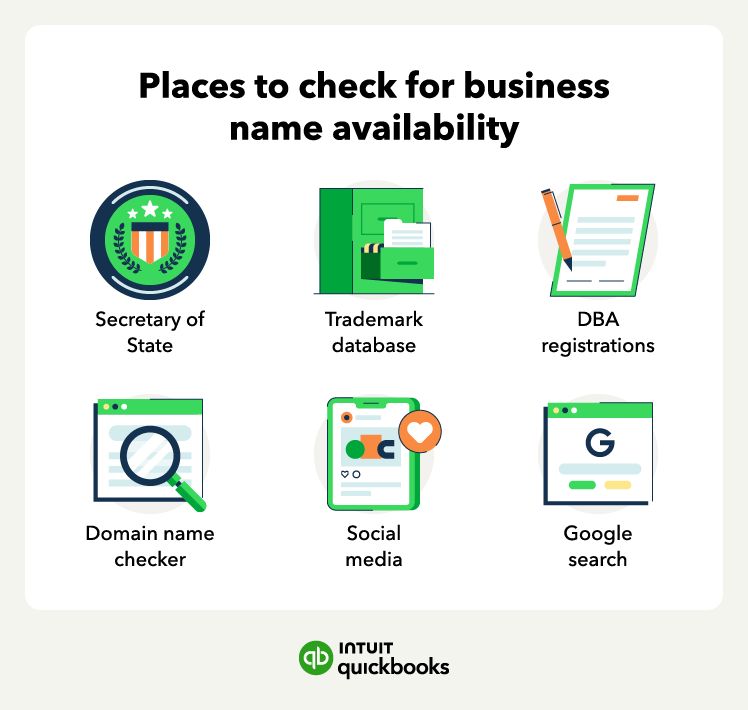Stuck in naming purgatory? Learning how to come up with a business name can feel like an impossible feat. It needs to be catchy, memorable, and accurately reflect your small business brand.
Our guide breaks down the top 18 tips for creating a business name that is as unique and memorable as the goods or services you sell. Plus, we share the next steps you need to take after you find your perfect match.










 Most generators let you input keywords related to your industry or product. This helps tailor suggestions to your niche and gives you a more relevant starting point.
Most generators let you input keywords related to your industry or product. This helps tailor suggestions to your niche and gives you a more relevant starting point.







